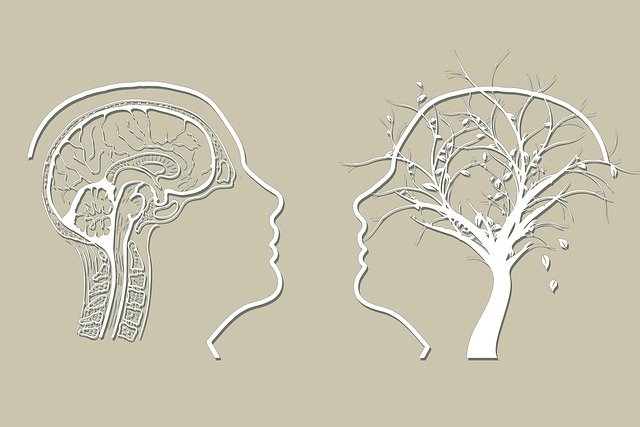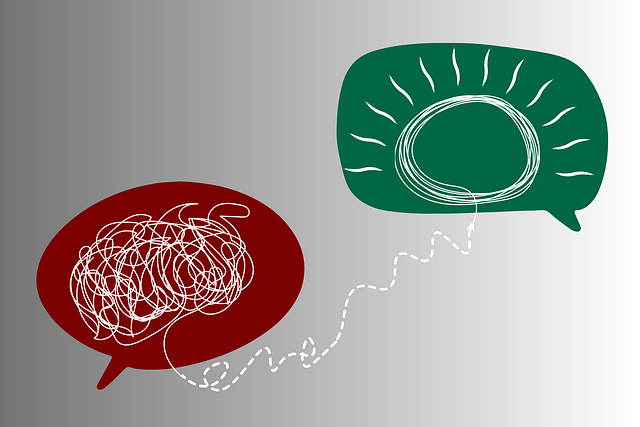Colorado Springs Codependency Therapy offers a specialized approach to combat codependency, an unseen yet common mental health concern characterized by unhealthy dependency on others for self-worth. Through professional guidance, individuals learn to identify and disrupt these patterns, improving self-esteem and boundary setting. Positive thinking exercises, including affirmations, cognitive reframing, gratitude practice, and mindfulness techniques, empower clients to overcome codependency, prevent depression, and foster emotional resilience, leading to stronger relationships and improved overall well-being.
“Unleash your mental health’s potential with a powerful tool—positive thinking. This article explores how understanding codependency, a common issue impacting mental well-being, can be transformed through the adoption of positive thinking exercises. We delve into the science behind its effectiveness and its profound impact on therapy, especially in the context of Colorado Springs Codependency Therapy.
Learn practical strategies for daily implementation and discover inspiring success stories that showcase the transformative power of these exercises.”
- Understanding Codependency and Its Impact on Mental Health
- The Power of Positive Thinking: A Transformative Tool
- Integrating Positive Thinking Exercises into Therapy
- Practical Strategies for Daily Implementation
- Success Stories: Colorado Springs Codependency Therapy in Action
Understanding Codependency and Its Impact on Mental Health

Codependency, a complex psychological phenomenon, often goes unnoticed yet significantly impacts mental health. It’s characterized by an excessive reliance on others for validation and emotional support, leading to a distorted sense of self-worth. In Colorado Springs Codependency Therapy, professionals focus on helping individuals recognize these unhealthy patterns and develop healthier relationships. The impact is profound; codependent individuals may struggle with low self-esteem, difficulty setting boundaries, and an incessant need for approval, all of which contribute to long-term mental health issues.
Understanding codependency involves recognizing when personal needs are overshadowed by the desire to please others. Effective communication strategies, often incorporated into Mental Health Education Programs Design, play a pivotal role in recovery. Social Skills Training, another key component, equips individuals with the tools to interact assertively and form meaningful connections, thereby fostering better mental well-being.
The Power of Positive Thinking: A Transformative Tool

The power of positive thinking is a transformative tool that can profoundly impact one’s life. In Colorado Springs Codependency Therapy, this approach is often at the heart of many successful treatment plans. By focusing on optimism and constructive mindset shifts, individuals can develop improved emotional regulation skills and gain a confidence boost that ripples through all aspects of their lives. Positive thinking exercises empower people to navigate challenges with resilience, fostering a sense of inner strength and peace.
This strategy isn’t just about ignoring negative emotions; it’s about learning to reframe them. Through daily positive affirmations and cognitive reframing techniques, individuals can better manage their moods, enhancing their overall well-being. By cultivating gratitude, setting realistic goals, and practicing self-compassion, one can create a more fulfilling life, leading to improved relationships and increased satisfaction in personal and professional endeavors—all within the transformative landscape of Colorado Springs Codependency Therapy.
Integrating Positive Thinking Exercises into Therapy

Incorporating positive thinking exercises into therapy practices has proven to be a powerful tool for mental health professionals in Colorado Springs Codependency Therapy. These exercises are designed to challenge negative thought patterns and promote healthier, more adaptive ways of processing emotions, which is especially beneficial for those struggling with codependency or seeking depression prevention. By encouraging clients to adopt mind over matter principles, therapists can help them develop resilience and a more optimistic outlook on life.
Positive thinking interventions offer a unique approach to trauma support services, enabling individuals to reframe their experiences and cultivate coping strategies that foster personal growth. Through regular practice, these exercises can transform one’s mindset, leading to improved overall well-being. The integration of such techniques in therapy sessions creates a supportive environment where individuals can learn to navigate challenges with increased positivity and self-compassion.
Practical Strategies for Daily Implementation

Incorporating positive thinking exercises into your daily routine is a powerful way to transform mental health and overall well-being, especially for those navigating codependency or recovery from trauma in Colorado Springs Codependency Therapy. A simple yet effective strategy is to start each day with a mindset check. Take a few minutes to acknowledge and challenge any negative thoughts that arise. Replace them with affirmations that promote self-love, resilience, and confidence. This practice can be as personal as choosing words that resonate with your unique journey, whether it’s through writing in a journal or simply repeating mantras silently.
Additionally, integrating emotional well-being promotion techniques throughout the day is beneficial. Engaging in activities like deep breathing exercises, meditation, or even a short walk in nature can help calm the mind and reduce stress. These moments of self-care not only enhance mental clarity but also serve as valuable tools for conflict resolution techniques when addressing interpersonal issues. By prioritizing emotional well-being, individuals are better equipped to handle challenges and foster healthier relationships, ultimately contributing to a more positive outlook on life.
Success Stories: Colorado Springs Codependency Therapy in Action

At Colorado Springs Codependency Therapy, we’ve witnessed firsthand how positive thinking exercises can transform lives. Many clients have shared their success stories, highlighting the profound impact of integrating emotional healing processes into their daily routines. Through our Mental Wellness Podcast Series Production, we offer a platform for these inspiring narratives, showcasing real people achieving remarkable mental wellness milestones.
One such story involves a client who struggled with codependency issues, often finding themselves in unhealthy relationships and experiencing low self-esteem. By participating in our tailored Mental Wellness Journaling Exercise Guidance, they learned to identify and challenge negative thought patterns. Through consistent practice, they fostered a more positive outlook, leading to healthier relationships and improved overall mental wellness. This transformation demonstrates the power of active emotional healing processes in reshaping one’s life for the better.
The implementation of positive thinking exercises, as demonstrated through success stories like Colorado Springs Codependency Therapy, offers a powerful tool for transforming lives affected by codependency. By integrating these strategies into therapy and daily routines, individuals can break free from destructive patterns, enhance mental health, and cultivate a more optimistic outlook. With consistent practice, positive thinking becomes a catalyst for personal growth and improved well-being.














